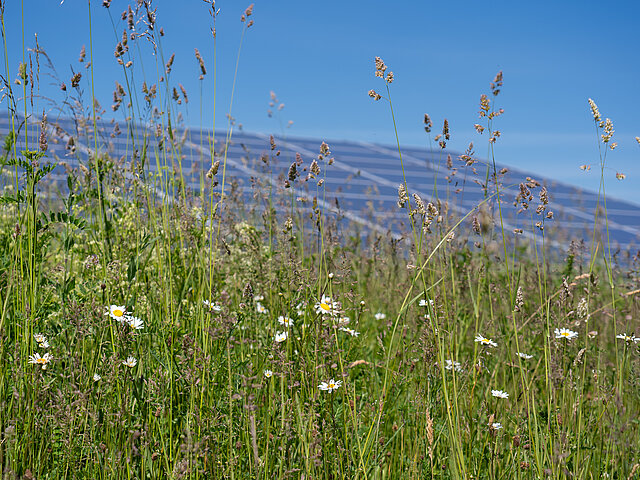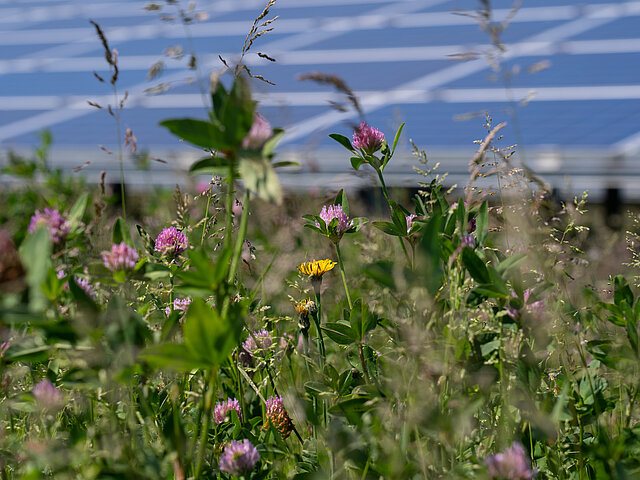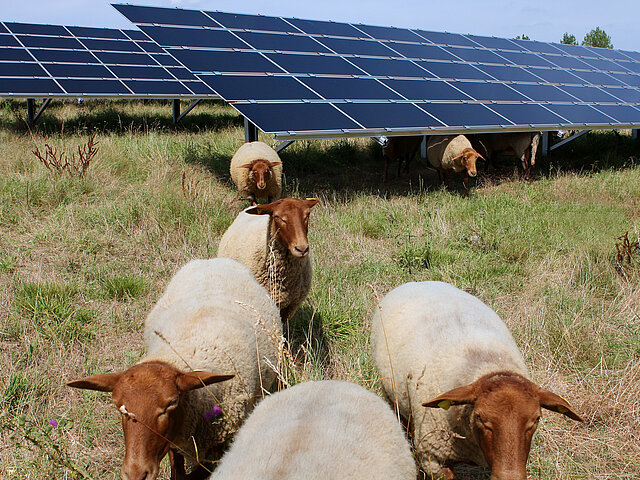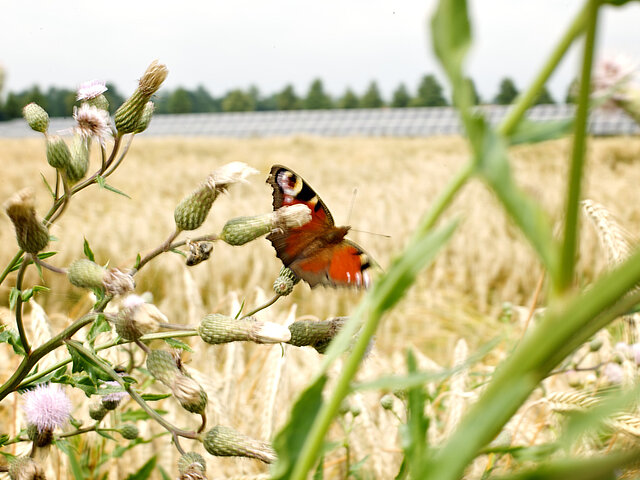
Free-field solar power plants: good for the climate and for species protection
Gernany has set itself ambitious climate goals: from 2035 renewable energy is to meet the demand of nearly the entire power supply of the country. Solar energy will make an important contribution to this goal: more than 20 gigawatts of solar capacity are to be added each year from 2026. In the years prior to this, the capacity will be increased gradually. In order to meet electricity demands it will not be enough to simply install rooftop solar modules. Instead, more socalled freefield solar plants need to be build on land sites.

A large land area also means a lot of space for environmental protection
These power plants appear to be gigantic at first: approximately one hectare of land is required for a plant with a capacity of one megawatt. Reservations on behalf of the communities due to these land requirements are usually quickly resolved because unlike other major construction projects like industrial estates or residental areas, the surfaces are not sealed. On the contrary: the ground, plants and animals profit from solar power plants if they are planned in a nature compatible manner. Futhermore, the ultilisation of solar power is significantly more effective than growing energy crops for biodiesel or gas. We can produce just as much electricity with one hectare of solar modules as we could with 50 hectares of maize.

Intensively used land becomes grassland once again
At JUWI we consider nature protection from the very beginning. This begins with the selection of suitable areas: especially disadvantaged areas are taken into consideration - for example areas along to motorways or railway lines. These areas are, however, so scarce that agriculteral areas in disadvantaged territories are also permitted to be constructed. These territories show a comparatively poor soil which needs to be heavily fertilised and watered.
In this way extensive permanent grassland and, therefore, new habitats for many species can be created from intensively used areas. Whether fertiliser nor pesticides are applied. The soil is not tilled anymore so that humus can form. Consequenlty, over-fertilised or depleted soils and the groundwater can recover. Furthermore, the ground is complety planted with regional plant species, which attracts animals, especially inspects. Humans seldomly set foot on the areas so flora and fauna can grow without much interference. Only two times a year the maintenance team visits the plant and uses mineral-fortified and, therefore, water permeable paths to get to the modules.

Biodiversity develops
The positive consequences have been scientifically proven: a study by the German association BNE (Federal Association for New Energy) showed that birds, reptiles, grasshoppers and butterflies, many of which had disappeared from the agricultural landscape or now only occur in small refuge habitats, are re-colonizing between the modules. Even endangered species such as wild bees, wheatears and hoopoes have been able to establish new populations.



